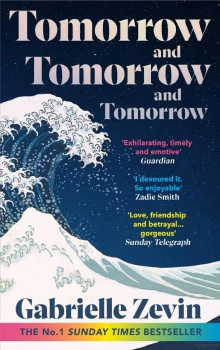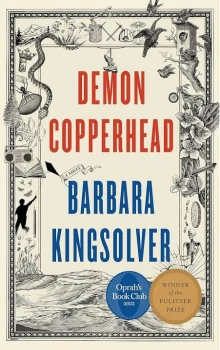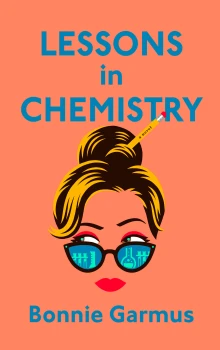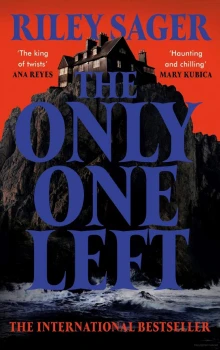3A
Sam hadn’t wanted to make a thing of his twenty-fifth birthday. Since his surgery, he had avoided making any plans that didn’t involve work or a doctor’s office. At Marx’s insistence, Sam had consented to go to dinner with Sadie, Marx, and their significant others. Sam had just reached the doorway of his house and was turning the lock when he felt a blinding, merciless pain. He fell to his knees and ripped off the prosthetic, throwing it so hard against the wall that it damaged the plaster.
He tried to call the restaurant, but his fingers were unable to manipulate his cell phone.
He lay down on the floor and he closed his eyes. He tried not to move, because moving was painful. But he could not fall asleep.
Around nine-thirty, a knock at his door. “Sam,” Marx called, “it’s me.”
Sam’s front door was unlocked, so when Sam didn’t respond, Marx went inside. Marx did not express surprise at what he saw: the foot thrown across the room, Sam on the floor. “Please leave,” Sam managed to say. Marx helped him out of his sweat-covered clothes and into his bed, which was a mattress on the floor.
“Can I do anything for you?” Marx said. “I’d like to help.”
Sam shook his head.
“It’s harder for me to help you now that we don’t live together, so you have to tell me what you need.”
Sam shook his head again.
“All right, my friend.” Marx sat on the floor by Sam’s bed. He turned on the television, and when he didn’t find anything to watch, he looked through Sam’s DVDs. Marx selected a recording of the 1981 Simon and Garfunkel concert in Central Park.
They’d been watching about a half hour when Sam said, “I don’t know where this DVD came from.”
“It’s mine,” Marx said, laughing. “My mom’s actually.”
By the time it was over, Sam’s pain had abated somewhat, and he could speak more easily; he turned to Marx. “It’s called phantom limb pain. I think my foot is still there, and when I put on the prosthetic, sometimes, I think it’s being crushed. I can feel my bones crumbling, and my flesh turning to liquid. They say it’s all in my head.”
Marx thought about this. “But what pain isn’t?”
Sam sat up in bed. “Please don’t tell Sadie.”
“Why?”
“I don’t want to distract her from finishing the game. And honestly, the pain isn’t real so it’s not that bad.”
At first, Sam had healed quickly from the surgery. The wound, though larger and rawer than wounds he had had before, seemed no more unmanageable, and he did not feel residual limb pain. He was allowed to check out of the hospital several days early to recover at his grandparents’, and he anticipated a quick return to work. From his childhood bedroom, he began to look at online real estate listings for apartments in Venice and Santa Monica, apartments on the Westside, near Unfair. He called Sadie, and they continued to refine the complicated Both Sides level design. He told her he’d be back no later than March first.
The second night he was at his grandparents’, the pains began. He woke up in the middle of the night screaming, drenched in sweat and urine, frantically kicking the foot that was no longer there. Sam was scared and ashamed, because he felt as if he had no control over his body, no understanding of what was causing the pain and thus, no means to ameliorate it. He kept reaching for the foot with his hand. The pain was so intense that he could not speak or explain when his terrified grandparents came into his room to ask him what was wrong. He tried to get out of bed so that he could throw up in the toilet, but he forgot that he didn’t have the foot, and he fell hard onto the floor, chipping one of his canines, bloodying his lip. He got up on his knees so that he could vomit. He felt helpless and like a child again. At the same time, he felt savage, less than human. His grandmother cradled him in her arms until Sam was able to fall into a fitful sleep.
The next day, he went to the doctor, and she diagnosed Sam with phantom limb pain. “You had a particularly violent episode of it,” the doctor said. “But it isn’t uncommon with amputees.”
For a second, Sam hadn’t known to whom the doctor was referring. No one had ever called him an amputee before. In Sam’s mind, amputees were war heroes or cancer survivors.
“Someone probably warned you about it before the surgery,” the doctor continued.
Sam nodded. If they had, he’d barely paid attention. He had assumed that once he’d committed to the amputation, the issue of his foot would be resolved.
The doctor gave him a photocopied handout that had exercises to combat the pain. For example, he was told to look at his stump in the mirror in order to reprogram his brain to accept that he was now footless. Sam hated doing this exercise. Even before the amputation, he had avoided looking at his foot. He had always felt that if he didn’t look at it, it couldn’t possibly be that bad. The doctor also gave him a prescription for an antidepressant, which he did not end up filling.
For several weeks, the pain did not return, and Sam was hopeful that it never would.
The first time the prosthetic was put on, the pain came back with an even greater fury. He knew it was more than the pressure of the stump against the prosthetic, though the physical therapist kept encouraging him and insisting that that was what it was. It felt as if his old foot were being crushed by the prosthetic. He felt dizzy and for a few seconds, he lost the ability to see or hear. He could taste bile in his mouth.
“I’m feeling some discomfort,” he said weakly. Sam’s superpower had always been his ability to conceal and ignore pain.
“You’re okay, Sam,” the physical therapist tried to encourage him. “You’re doing fine. I’ve got you. Just take one step.”
Sam took one step, smiled weakly, and then he fell to his knees and vomited.
Sam was sent to a therapist, a hypnotist, an acupuncturist, and a masseuse, and while all these things worked to an extent, nothing could stop the pain when it decided to emerge. Sam was told to look for patterns and triggers. The only triggers were when Sam went to sleep or when Sam tried to walk—and it was challenging to live a life that involved neither sleeping nor walking. Adjustments were made to the prosthetic. Socks were added, socks were taken away. But mainly, whenever he wore the prosthetic, he was in an agony so consuming he could not think. Thinking, for Sam, was necessary, and the pain made him feel stupid, an entirely new phenomenon for him.
Sam’s doctor said to him, “The good news is that the pain is in your head.”
But I am in my head, Sam thought.
Sam knew the foot was gone. He could see it was gone. He knew what he was experiencing was a basic error in programming, and he wished he could open up his brain and delete the bad code. Unfortunately, the human brain is every bit as closed a system as a Mac.
He couldn’t hold food down in those first months, and he ate very little. He lost twenty pounds, which scared his grandmother. Eventually, the pain decreased, or his ability to tolerate it grew. He returned to work. Disturbingly, for the first time in his life, games proved neither distraction nor comfort. The pain seemed to occupy spaces in his mind that had heretofore been untouched or reserved exclusively for imaginary endeavors.
3B
“Is it strange that your friend didn’t show up for his own birthday dinner?” Sadie’s boyfriend, Abe, asked. They were standing outside the Silver Lake restaurant Marx had selected because of its proximity to Sam’s place. The restaurant had a tree growing in the center of it, and it was famous for being the best place on the Eastside to break up with someone.
“No,” Sadie said. “I used to waste a lot of time worrying about him, but he’s the kind of person who tends to go missing.”
“Everyone’s got friends like that,” Abe said. “You want to go back to my place? Now that I’ve got you on my side of town, it would be a shame if you didn’t see it.”
Abe Rocket was the lead singer and second guitar player of Failure to Communicate, one of a thousand or so bands that resided in the three-square-mile area of Silver Lake circa 1999. By the night of Sam’s birthday, Sadie had been seeing him for about a month, but she had never gone to his house. The drive was too long, and it didn’t seem worth it to Sadie to drive across town for Abe when the relationship was not that serious. She had not been with him long enough to know any of his stories or to know if Abe Rocket was a stage name or the name he’d been born with. She had met him at a concert that Zoe had taken her to. She liked Abe because he was a gentle and courteous lover (“Sadie, may I put my hand on your breast?”) and because he didn’t play games—video or personal—and because he didn’t mind driving to Venice.
Abe’s house was tidy and smelled like sandalwood, and he had around a thousand vinyl records, neatly organized into white lacquer Ikea shelves. Abe’s collection included LPs, but Abe’s passion was 45s. He loved B-sides, and the history of A-sides and B-sides, which Sadie knew nothing about. Originally, Abe explained, the record companies had put the “hit” on the A-side and the lesser track on the B-side. At some point, the record companies started calling 45s double A-sides so that there’d be less conflict in bands. According to Abe, John Lennon and Paul McCartney had been at each other’s throats over which of their songs would be called the A-side. McCartney’s “Hello Goodbye” (A) versus Lennon’s “I Am the Walrus” (B), for example.
“But there is no double A-side. The A-side is still the A-side,” Abe said. “Doesn’t matter what some evil record company tries to pretend.”
Abe and Sadie smoked some pot, and he put on one of his favorites 45s, the Beach Boys’ “God Only Knows,” which was the B-side to “Wouldn’t It Be Nice.” Abe particularly liked incidents where the B-side had become more significant than the A-side.
“Can you believe that?” Abe said. “Who would ever think ‘Wouldn’t It Be Nice’ was better than ‘God Only Knows’?”
“I get it, though. ‘Wouldn’t It Be Nice’ is definitely more upbeat,” Sadie said. “You sort of want to kill yourself when you hear ‘God Only Knows.’ ”
“That’s my favorite kind of music,” Abe said. “I call it afternoon music. You don’t want to listen to it too early in the day, or the day’ll be lost to you.” Abe put his arms around Sadie. “You’re an afternoon woman, sexy Sadie. You don’t want to meet someone like you too early in your life, or you won’t ever like anyone else.”
“I bet you’ve said that before,” Sadie said.
Several months later, Abe would go away on tour, and that marked the end of that particular relationship. She did not regret having dated Abe, or that it had ended. She felt, in a way, that she finally understood Marx (though he was now effectively settled down with Zoe). Long relationships might be richer, but relatively brief, relatively uncomplicated encounters with interesting people could be lovely as well. Every person you knew, every person you loved even, did not have to consume you for the time to have been worthwhile.
She expressed some of this to Marx at the office, and he laughed at her. “I’m afraid I’ve given you the wrong impression, Sadie,” he said. “I rather like to be consumed.”
Sadie took a long look at Marx. They had worked together for five years, but she sometimes felt as if she had all the wrong ideas about him. “And you’re consumed by Zoe?” Sadie liked Zoe. They’d never been friendly in Cambridge, but in L.A., they had become instant best friends in the way people can in their twenties.
“I devour, and I am devoured,” Marx said.
“After Dov, I think I’m through with devouring,” Sadie said.
“I understand why you’d say that, but I also don’t think you should give up on the devouring yet.” Marx growled at her and pretended to bite her, and then he kissed her on the cheek.






